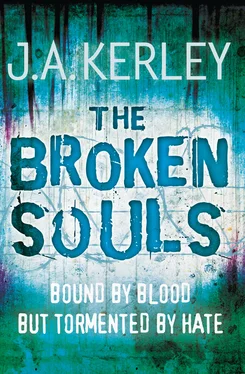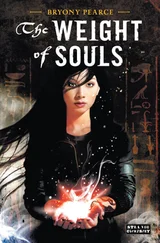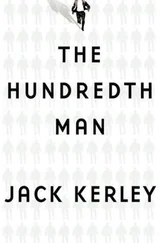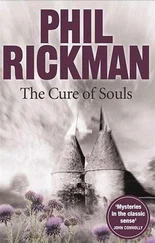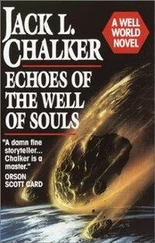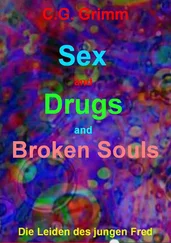I picked up the report at the front desk, then stepped into a day more like August than June, heat rippling from the asphalt surface of the parking lot.
Stepped outside any limits …
Walking to the car I revisited Clair’s phrase, a curious assemblage of words. And that throw-away line about staying away from the Kincannons …
Was that some kind of warning?
You’re losing it, I thought, slipping behind the wheel. The only warning here is to keep your imagination in check.
Mrs Kayla Rudolnick was the mother of Dr Bernard Rudolnick, Harwood’s victim. A thin woman in her late sixties, she wore a brown pantsuit and pink slippers, holding a cigarette in one hand, a glass ashtray in the other. She’d apologized for having her hair in curlers and led us to a couch with antimacassars on the back. The room smelled of Ben-Gay and nicotine. She switched off the television, a soap opera.
“It was just a phone call. But I recall her saying she was a reporter.”
“Taneesha Franklin?”
Smoke plumed from her nostrils. “The Taneesha is what I remember.”
“What did Ms Franklin want to know?” I asked.
Mrs Rudolnick’s eyes tightened behind a wall of smoke. “I told her to leave me alone. Bernie was gone. Never call me again.”
Mrs Rudolnick plucked a pink tissue from her sleeve, lifted her bifocals and blotted her eyes.
“He was a good man, my son. Brilliant mind, good heart.”
“I’m sure.”
“He had his problems. But we all do, don’t we?”
I shot Harry a glance. We’d come back to that.
“The doctor wasn’t married?” I asked.
“When he was twenty-eight, again when he was thirty-six. Both marriages lasted under two years. He couldn’t pick women, they both cleaned him out like a closet. Two times he started over.”
A photo sat on the table beside me: Rudolnick and Mama maybe a half-decade back, his arms around her from the back. Like his mother, Rudolnick had sad Slavic eyes and a nose-centric face. His hair was black and thinning, brushed straight back. His white shirt was buttoned to the Adam’s apple, the collar starched. He looked like he could have been dropped into the 1950s and no one would have noticed.
Harry and I had hoped a wife might provide insight into Rudolnick’s behavior and patterns. But the good doctor had been five years gone from marriage and lived alone. I said, “So his last wife might not be able to tell us much about his life.”
“Shari? He met her at a bar. You don’t meet decent women at bars. She moved to Seattle four years ago. Probably found herself a new bar and a new Bernie.”
“You mentioned Bernie having some problems, Miz Rudolnick,” Harry said.
She tapped ash into the tray and looked away. “You know, don’t you?”
“No, ma’am, I never met your son.”
“It’s in the records. You didn’t look?”
“I don’t know what records you’re referring to, Miz Rudolnick.”
“The records down where you work.”
I finally made sense of what she was saying. And maybe why she’d been spooked by a reporter.
“Your son was arrested?” I asked. “When?”
She looked away. “Four years ago. He had some problems.”
“Can you explain, please?”
“After Shari left he became depressed. Sometimes – not often – he took things to help him cope, calm down. He was always high-strung.”
“Drugs?”
“He was a doctor. He used it like medicine.”
“Of course.”
“One day he came here. He was crying and I was terrified. He said there was a hospital worker he’d been buying some of his medicine from, and the police had been watching the hospital worker. Bernie was purchasing something. He was sure it would come out in the papers, his career would be over.”
She looked from my face to Harry’s. Though her son was dead, the episode printed fright and humiliation across her face.
“It’s all right, ma’am. We don’t need the full story.”
I figured we’d get it from the arrest report, save the poor woman the retelling.
She said, “He stopped taking those things. What happened with the police finally made him stop.”
“How was his behavior before the end?” I asked. “Normal?”
A grandfather clock in the hall chimed. We waited until it fell silent.
“About a month before…that day, he seemed depressed again. He came over to see me less. He was quieter, like he was deciding on something.”
“Could have been something with his work? Unhappiness?”
She walked to the mother-and-son photo. Touched it with reverence. “He loved his work. He was born to help people get better. He consulted in the region’s best facilities. Bernie was on the board at Mobile Regional Hospital. He had a private practice.”
It was a good place to take our leave, on the high note of her son’s achievements. As we moved to the door, I asked one final question.
“Excuse me, Mrs Rudolnick. Did your son have a specialty?”
She exhaled a plume of smoke, spun a tobacco-stained finger at her temple. “He worked with tormented minds.”
Psychotics? A bell rang in my head. Had Rudolnick known Harwood earlier? I wondered. Did they have a history? What if Harwood had been a patient, or part of a study?
I said, “I don’t suppose he ever mentioned patients by name.”
She crushed the cigarette dead in the ashtray and set it aside. “He was absolute about privacy.”
Harry said, “The records your son kept about his patients. All gone, right?”
“They were in his house and I didn’t know what to do with them. I keep them in storage. I don’t know why.”
“Would it be possible to look at them?”
She held up her hands, waving my words away. “No. It’s all confidential, a bond of trust.”
Harry stepped close. Gathered her hands in his, held them steady. I could never do anything that simple and perfect. “It might be helpful, Miz Rudolnick,” he said quietly. “It would never go further than Carson and me. And it might be our key to finding who killed your son.”
Her eyes shimmered with tears and her mouth pursed tight. “It was that filthy Harwood animal, scum. Piece of dirt…piece of shit.”
“I wish that was true, ma’am. But Leland Harwood was just a tool, a hammer. The man who swung the hammer is still out there.”
She shook her head. “No. It can’t be. It’s not right.”
“Detective Ryder talked to Leland Harwood an hour before he died, ma’am. He thinks Harwood was sent to harm your son.”
She looked at me. “Is that true?”
I nodded. “Leland Harwood was an enforcer. He always worked for others.”
Her face tightened in anger, turned to Harry.
“You’ll respect the confidentiality of my son’s files?”
“You have our word on it,” Harry said.
Kayla Rudolnick looked into Harry’s eyes until she found something she needed to see.
“The storage facility is on Cottage Hill Road. I’ll get you the key.”
There were eight white boxes in the facility, rows of locked cages in an old warehouse; a guard had been alerted to our visit. We took the boxes from the cage rented by Mrs Rudolnick and stowed them in the trunk of the Crown Vic.
Picking up the last of the boxes, Harry nodded through the grid at the adjoining enclosure. I saw a crib, boxes of child’s toys, stuffed animals, posters pulled from walls, the tape at the edges brittle and yellow. A small wheelchair. A red bicycle with training wheels. Even under dust, the bike looked unused.
I suddenly knew what used-up prayers looked like. Harry sighed, shook his head, and we tiptoed away like thieves.
We dropped the files at Harry’s house, then returned to the station. I tapped Rudolnick, Bernard, into my computer, expecting an arrest record. Mitigating circumstances allowing Rudolnick to pay a fine, perhaps, slip past punishment if he enrolled in a program and stayed clean.
Читать дальше
